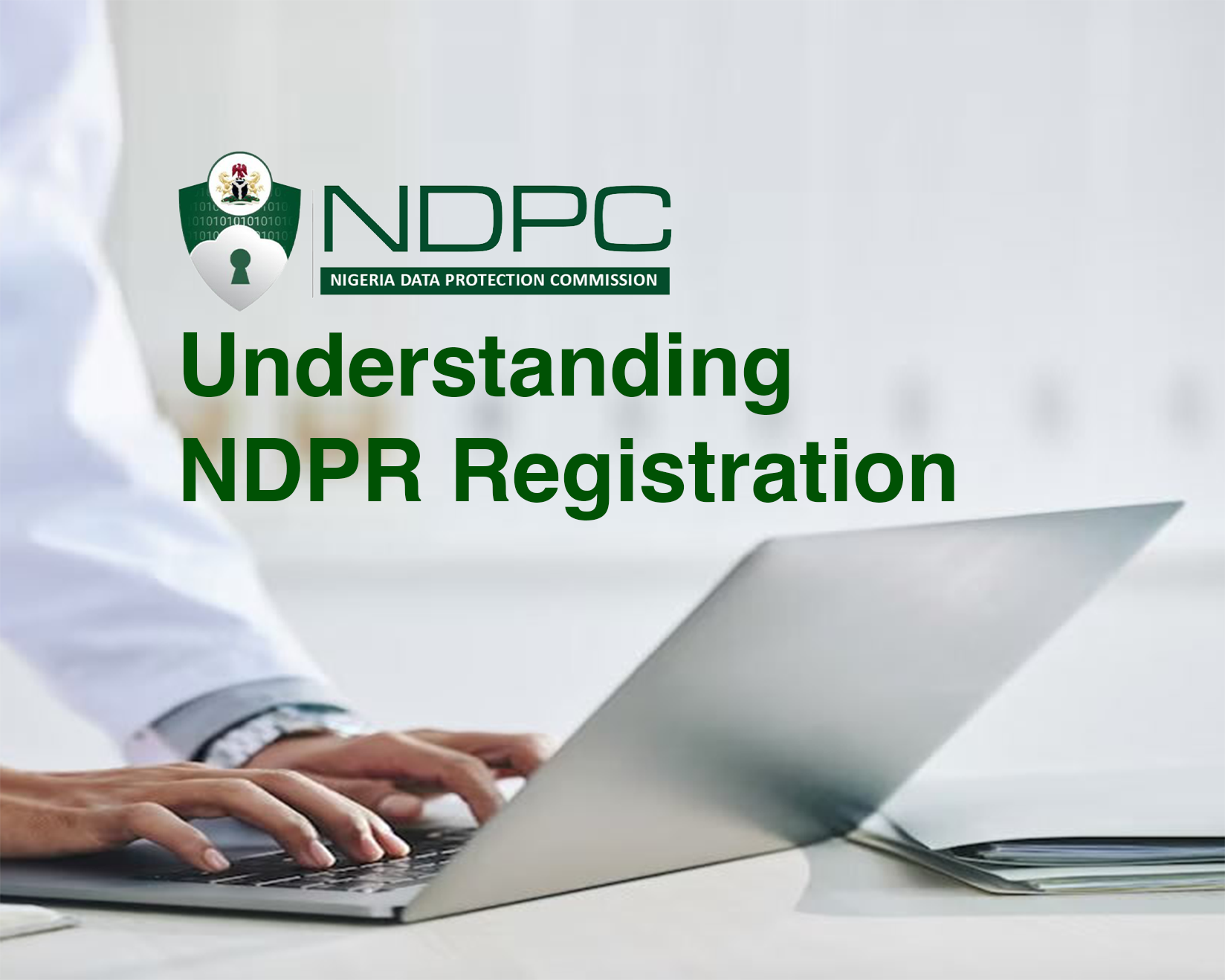

INTRODUCTION
In today’s digital world, data is the new currency. Every time someone fills out a form, makes a purchase, or signs up for a service, they’re handing over something deeply personal, their trust.
And when that trust is broken, rebuilding it is far more expensive than protecting it in the first place.
That’s where the Nigeria Data Protection Regulation (NDPR) comes in. Issued by the National Information Technology Development Agency (NITDA), the NDPR sets the standard for how Nigerian organizations collect, use, and protect personal data.
While most businesses have heard of the NDPR, very few understand what NDPR registration truly means or why it’s such a critical step for long-term success.
Let’s break it down.
SO WHAT EXACTLY IS NDPR REGISTRATION?
Think of NDPR registration as Nigeria’s way of saying, “If you handle people’s data, handle it responsibly.”
It’s the process where organizations formally declare how they collect and use data and show that they comply with NDPR principles. In other words, it’s your way of telling both regulators and your clients, “We take data privacy seriously.”
There are two main types of organizations that must register:
Data Controllers: Businesses that decide why and how personal data is collected or used (like banks, schools, hospitals, or e-commerce platforms).
Data Processors: Organizations that handle data on behalf of others (for example, cloud service providers, payment processors, or IT firms).
If your business manages customer lists, employee records, client forms, or digital sign-ups, NDPR registration applies to you no matter your size.
It’s not just a legal checkbox. It’s a sign that your organization values privacy and operates with integrity.
WHO NEEDS TO REGISTER UNDER THE NDPR?
The short answer? Anyone who handles personal data.
If your business collects names, phone numbers, email addresses, or any information that identifies a person, you’re expected to register.
Here’s what that means in practice:
1. Banks, hospitals, schools, and e-commerce platforms (Data Controllers) because they decide what data to collect and how to use it.
2. IT firms, marketing agencies, payment gateways, and virtual assistants (Data Processors) because they process data for others.
3. Small businesses: Yes, even you! NITDA provides a simplified process for SMEs, but compliance is still required.
At Law Accent, we often remind clients: NDPR registration isn’t about bureaucracy. It’s about accountability and showing customers, “We protect what you share with us.”
WHAT DOES NDPR REGISTRATION INVOLVE?
NDPR registration goes beyond filling forms, it’s about setting up a structure that keeps your data practices transparent and secure.
Here’s what it generally involves:
Appointing a Data Protection Officer (DPO): This person ensures your organization stays compliant and acts as your point of contact with regulators.
Conducting a Data Protection Impact Assessment (DPIA): Especially if you handle large volumes or sensitive data like health or finance records.
Developing or Updating Your Privacy Policy: Your privacy policy should clearly explain how you collect, use, and protect personal data in language your customers can understand.
Filing a Compliance Statement or Audit Report:
1. Large organizations submit annual audit reports.
2. SMEs can file a simplified Statement of Compliance.
Registering on the NDPR Portal: Visit ndpr.nitda.gov.ng to complete your registration and appear in NITDA’s public database of compliant organizations.
At Law Accent, we guide organizations through these steps, making compliance smooth, practical, and aligned with how your business actually runs.
WHY NDPR REGISTRATION MATTERS
NDPR compliance isn’t about ticking boxes, it’s about building credibility. Here’s why it matters more than ever:
1. It keeps you compliant and protected: Avoid fines, investigations, and reputational risk.
2. It builds customer trust: People are more likely to engage with businesses that respect their privacy.
3. It strengthens your brand reputation: Compliance signals responsibility, integrity, and leadership.
4. It improves data management: The compliance process helps you streamline systems and reduce inefficiencies.
5. It opens global doors: NDPR alignment makes collaboration easier with international partners who value privacy standards.
In essence, data protection isn’t just about regulation, it’s about reputation.
TAKING THE FIRST STEP
Getting started doesn’t have to be overwhelming. Begin by asking simple but powerful questions:
1. What kind of data do we collect?
2. Where do we store it?
3. Who has access to it?
4. Do we have consent to use it?
Once you’ve assessed where you stand, the next step is to work with a licensed Data Protection Compliance Organization (DPCO), a partner that understands both the legal framework and the realities of business in Nigeria.
At Law Accent, we make NDPR compliance seamless. From gap assessments and privacy policy drafting to staff training and registration filing, we help businesses move from confusion to clarity and from compliance to confidence.
CONCLUSION
The era of casual data handling is over. Every organization, big or small must now show that it values people’s privacy as much as it values their patronage.
NDPR registration isn’t just a regulatory requirement; it’s a trust badge. It tells your clients, employees, and partners that you take their information seriously and that you’re ready to do business the right way.
At Law Accent, we’ve seen firsthand how compliance can elevate a brand, building credibility, attracting global partnerships, and ensuring long-term sustainability.
If your business is ready to take that step, our team is here to walk with you every step of the way.


Book a free consultation to discover how professional legal guidance can assist with your specific needs.
For Enquiries and Consultations